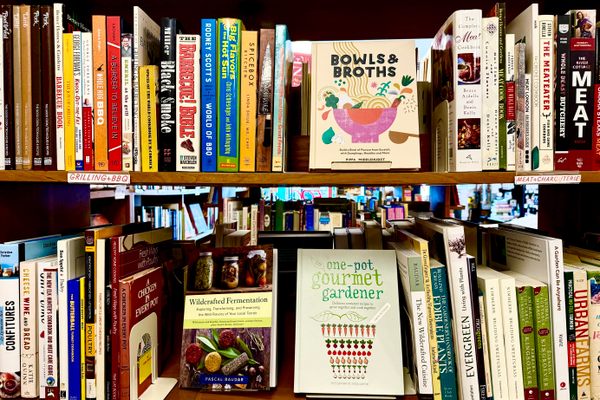Book Towns: Where Reading Is the Reason to Live
The “Honesty Bookshop” in Hay-on-Wye (photograph by Zach Beauvais)
Some small towns in the rural reaches that lost their former industries have reimagined themselves as “book towns.” By filling empty storefronts with used and antiquarian bookshops, and hosting literary festivals, the goal is to attract new visitors in the form of bibliophiles.
The book towns are officially united through the International Organisation of Book Towns. The movement started in 1961 with Richard Booth in Hay-on-Wye in Wales, and now includes towns across Europe and in Malaysia, Korea, and Australia. However, the drive for a sustainable tourism development program in these rural areas has hit some hurdles in recent years with the consolidation of the used book trade online and rise of the e-book. As Adrian Turpin, director of the literary festival in Wigtown, Scotland’s book town, told the BBC in 2012:
“There was a time when second-hand book sellers in book towns were first of all selling books and secondly selling the experience of browsing. Now it is almost the other way around.”
Despite these recent changes in the literary landscape, the book towns thrive on. Here are five of our favorites, and you can find even more on the International Organisation of Book Towns site.
Hay-on-Wye, Wales
photograph by ismas/Flickr user
Starting with the book town’s birthplace, Hay-on-Wye, Wales, has about two dozen book shops, ranging from Murder and Mayhem focused on crime and horror to the Castle Book Store nestled in and around a 12th century chateau. The town of just under 2,000 also hosts an “honesty bookshop,” where you make your selection against a backdrop of some old ruins and leave your money in a box.
photograph by Mark Chatterley
Fjærland, Norway
photograph by Eduardo
The stunning little town of Fjærland, Norway, was only accessible by boat until 1985, but now with a road draws in a steady tourist trade. Many come for the books, which cluster in former cow sheds and pig pens as well as other structures in the area where settlement dates to the Viking Age. Fjærland started as a book town officially in 1996, and alongside the glaciers and fjords still entices a reading crowd.
photograph by Per Olav Bøyum
Redu, Belgium
photograph by Dimitri Neyt
Calling itself the ”Village du Livre,” Redu, Belgium, joined as a book town in 1984. With about 400 residents lodged amidst the Ardennes forest, the town has over 20 bookshops with specialties ranging from nautical tomes to science and medicine, all with multiple languages for the Belgian crowd. Each August, Redu also hosts the Nuit du Livre, where all the bookstores stay open through the night.
photograph by Jean Housen
Sedbergh, England
photograph by Andrew Bowden
As Visit Sedbergh states: “The Sedbergh book town project was started after the 2001 Foot and Mouth Disease outbreak in order to encourage an increase in the number of visitors, whose enjoyment of the beautiful countryside around Sedbergh supports the functioning of vital town centre amenities.” The English town’s main street is now lined with book shops, making it the third book town in the UK after Hay-on Wye in Wales and Wigtown in Scotland. Sedbergh itself is surrounded by hills where the local economy once focused on farming and the production of wool clothing, but now its aim is to secure a future in books.
photograph by Steve F.
Urueña, Spain
photograph by Frank Baulo
The medieval town of Ureña in Spain has just over 200 citizens, and has revitalized many of its old buildings through the book trade. One of the about a dozen shops is in a wine cellar (and specializes in wine-focused literature, naturally), while another concentrates on bull fighting. There’s also the e-LEA Centre with workshops and exhibitions on reading and writing, as well as the Alcuino Caligrafía that celebrates calligraphy. It’s all set in one of the most picturesque, nearly perfectly preserved medieval towns in the Castile-Leon region, where through reading visitors may continue to wander its stone streets, perhaps while lost in thought through literature.
photograph by Luis Zamarreño Cosme
photograph by txefar/Flickr user











Follow us on Twitter to get the latest on the world's hidden wonders.
Like us on Facebook to get the latest on the world's hidden wonders.
Follow us on Twitter Like us on Facebook